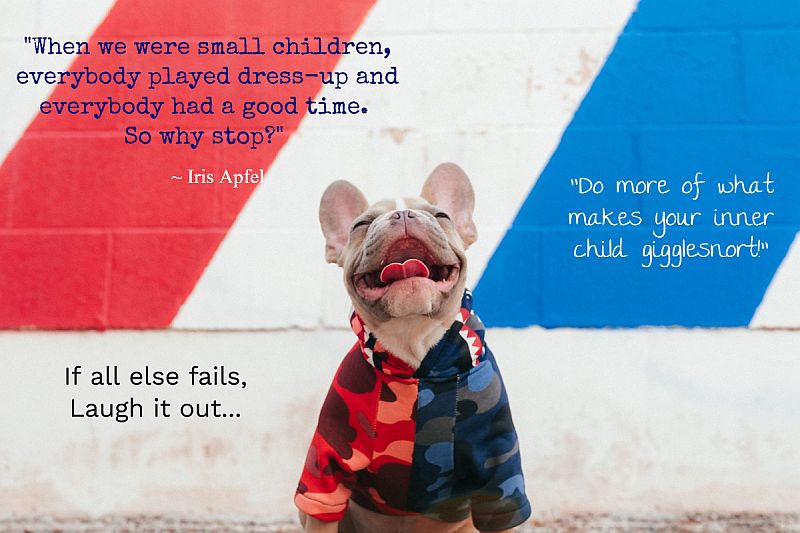Live Free!
I recently caught myself over-fretting about something in particular (a hiatal hernia I have.. very minor but very bothersome). I allowed it to intrude on every single day. I could be having a wonderful, beautiful day with my grandbabies in the yard and my mind would turn to IT…
- I wonder if I’m lifting too much today.
- Should I eat more fiber?
- Should I give up meat?
- What’s that pain? Is it IT starting to act up?
You know the routine. Give your mental worry wart an inch and she will absolutely take a mile and a half. If you don’t catch yourself, you’ll find that you’re almost like a bird in a cage – and each bar is a worry your mind will not let go of.
Trick is, it doesn’t even have to be a health issue people become “caged by.” It can be weight, growing older, money (many a cage is built by this one alone!), etc.
What’s more, a lot of people build cages made up of bars they take from other people’s lives…
- Oh man, should he lose weight… why DOES he eat so much?
- She should absolutely stop dressing like she’s still in her 20s.
- Why in tarnation does my son listen to that so-called music?!
- If he wears a mask one more time in this store I’m going to scream.
- Why do kids like to play video games? I never did!
- etc etc etc etc…
Left unchecked, a cage is most assuredly built and the builder finds himself or herself caged like a parakeet that can’t taste freedom.
I caught myself one gorgeous afternoon while, ironically, watching a few birds in the tree. I thought of birds I’d seen in a zoo’s “Rain Forest” exhibition once and also in another part of the zoo, in smaller cages. I looked at the birds in front of me and thought, “How wonderful that they’re so FREE!”
At that moment (personally, as a Spiritual person, I believe the Holy Spirit nudged me), I realized that my ridiculous thoughts were caging me and keeping me from truly tasting the freedom I should be feasting on. Since that moment, whenever my mind wants to veer off into the land of “what if”s, I literally say (sometimes out loud, to my cats’ amusement), “No! I’m FREE from that cage!”
Let me tell you, friends, freedom feels beautiful and it is a very addictive feeling.
I’ve also used it in a few other instances, giving sweet FREEDOM to myself in other areas that could become problematic:
- When I see someone so filled with hate and anger online, instead of fretting over them, I say a quick prayer for them and let it go… again, claiming the “freedom.”
- When I find myself worrying about something on the world’s stage (of which I have zero control)… well, see above.
One of the things this experience has reminded me of is the feeling we had as children… every day was exciting and filled with wonder. We weren’t weighed down with any of the above nonsense. We were free – children simply aren’t into cage BUILDING… they’re into FLYING FREE.
We could learn a lesson or two from them. In fact, if you’re like me, you often have a word or two you take into a new year as your “focus word” for that year. I already know the word I’ll be carrying into 2023 and I highly recommend you pack it as well… FREEDOM.
Try it, you’ll love it.
This is a very short post and a very quick thought, but I was very anxious to share it with you because it has meant the world to me. In fact, it has meant experiencing more freedom – and you cannot put a price tag on that. ~ Joi (“Joy”)






